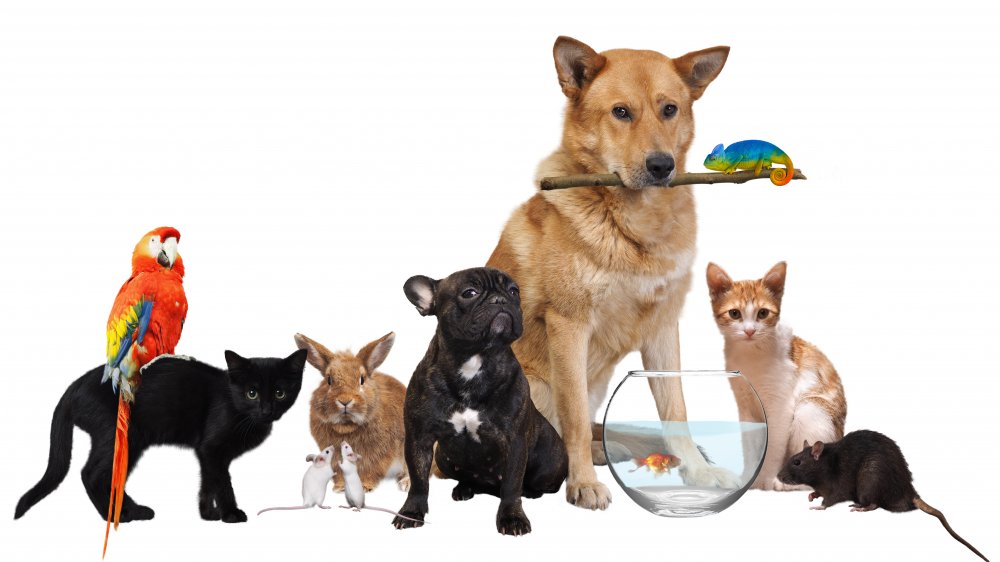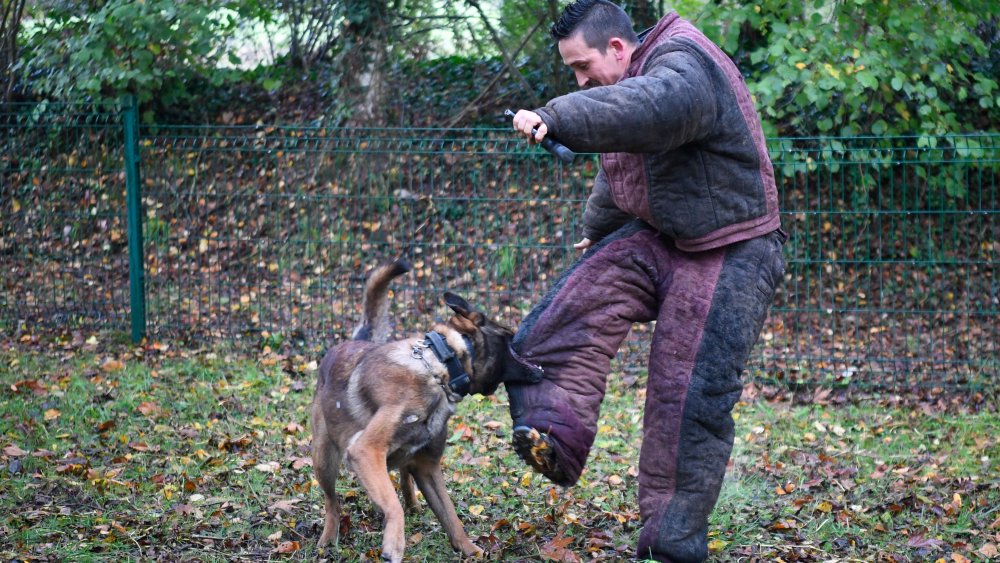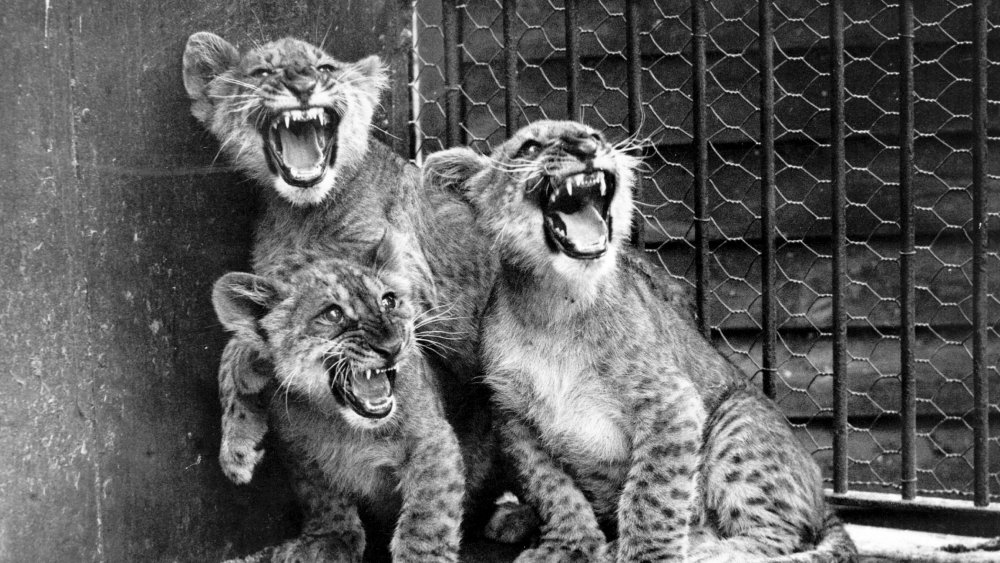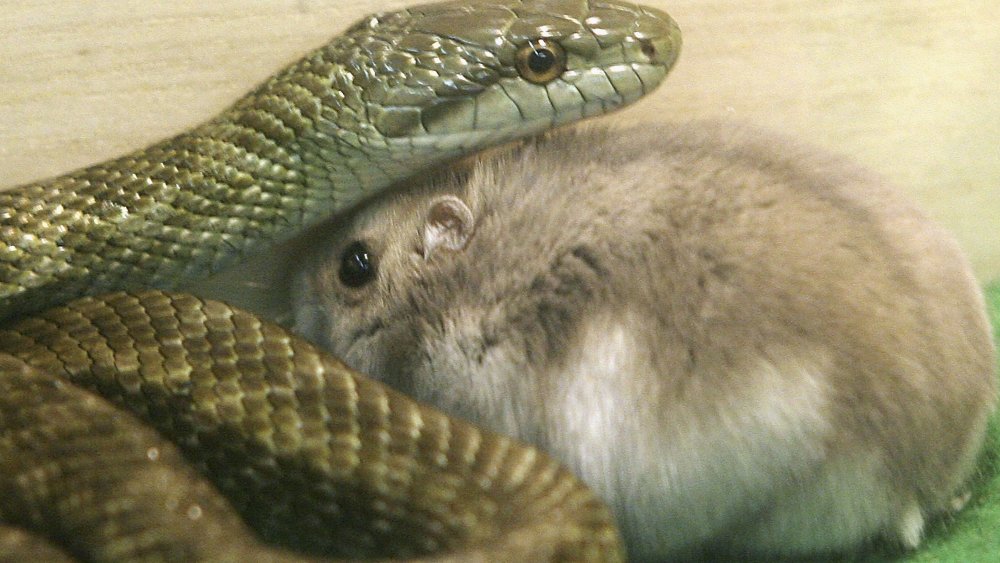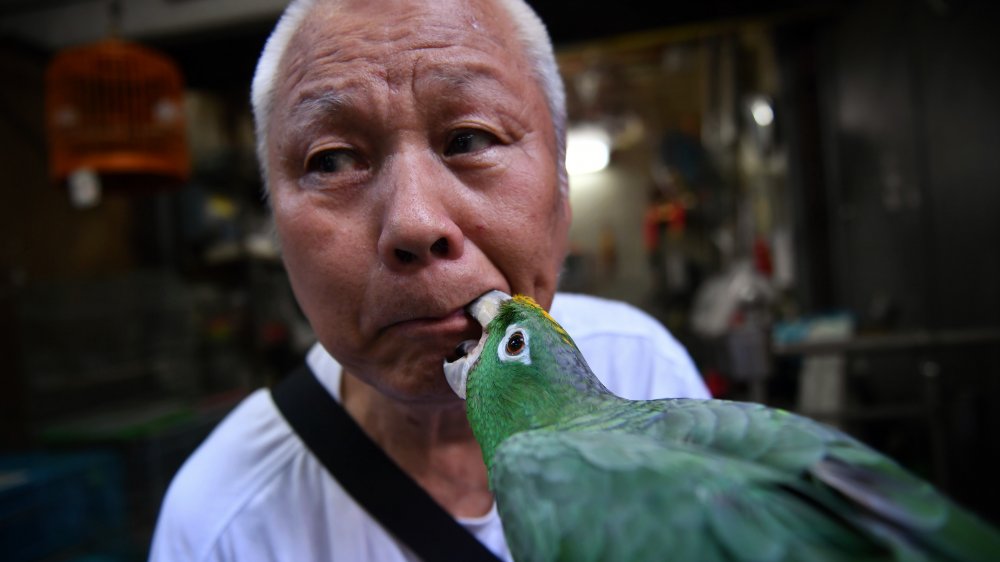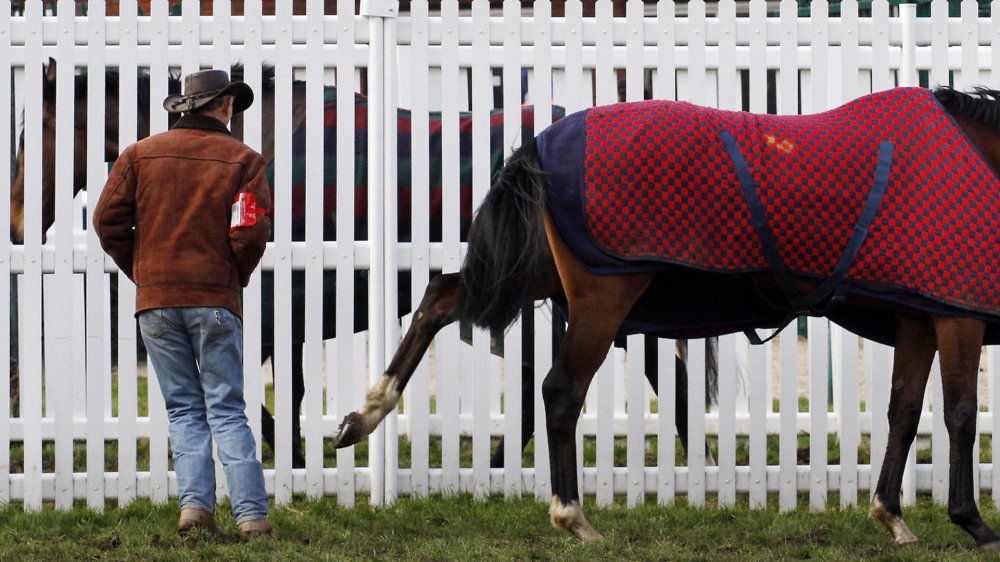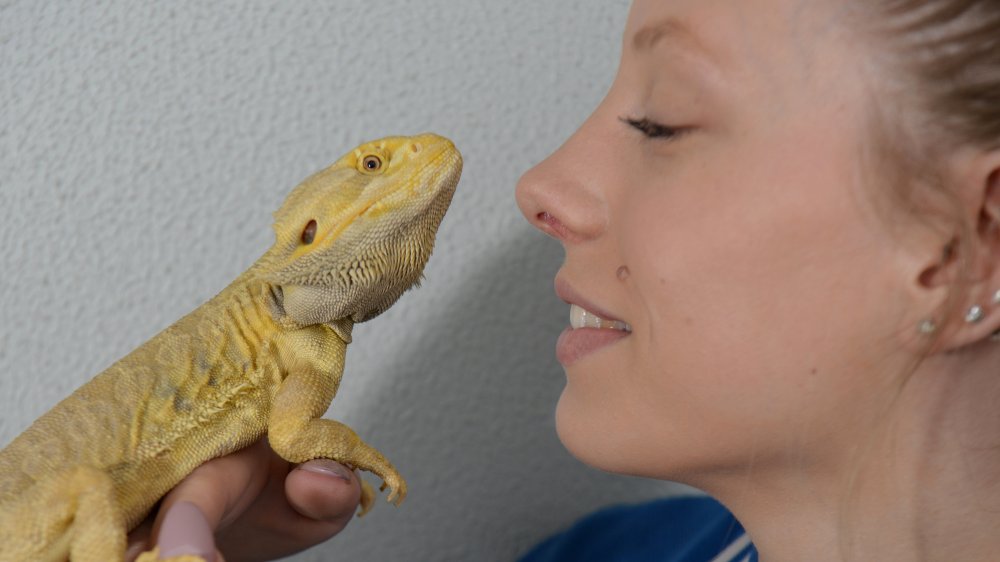Here's How To Know If Your Pet Has Really Bonded With You
"Does my (insert animal) love me as much as I love (gender)?" This is the question that has plagued both pet owners and the chronically stoned for generations. But short of a world-changing scientific breakthrough that brings the plot of the 1993 cinematic masterpiece Look Who's Talking Now into the present, we may never have a direct line to the thoughts of our domesticated besties.
Luckily, though, experts in the field of animal behavior have been hard at work determining whether or not your love is requited. Here's what they've come up with:
Does my dog love me?
Per the good people at Rover, there are a handful of signs that your dog is way into you. First off, there's eye contact: does your pup stare deeply into your baby blues as if gazing upon their first sunrise? That's a decent starting point. In the wild, eye contact can be seen as threatening, but a loving gaze from a dog indicates trust and affection. They also list "checking in" as a positive sign: when you're out on a walk or checking out a new place, does your dog keep looking back at you, as if to say, loudly, "have you seen this business?!" That's good news for your kinship.
Additionally, a classic canine freak out when you return home is a great sign, as is an ability to chill out in a sanguine state when you're together for a while.
Is my cat just tolerating me?
Cats are, by definition, a different animal, and decidedly more difficult to gauge on the affection scale. Handily, Petplace lists seven whole ways to tell if you're on your furball's Valentine's list, but one stands head and shoulders above the rest.
Like your last four boyfriends, cats display their love by killing things and leaving them on your front porch. Why? It sees you as a helpless predator, incapable of slaughtering rodents and birds on your own. It's trying to help. You're welcome. Exposing its tummy is, theoretically, another expression of the creature's love language, right up until you pet it wrong and get a handful of cat fangs.
Does my hamster cheese when it sees me?
Hamsters: they're like rats that got dressed all the way. It can be difficult to know whether or not your hamster cares if you live or die, especially since they will probably go their entire life physically incapable of seeing your face and thinking of you as the blurry sky god that brings yogurt treats.
Still, there's some insight to be gained from the folks over at Cuteness, who claim that a hamster has a number of physical tells that'll clue you in on how deeply they adore you. The dead giveaway comes when the living Koosh balls come to your voice when called instead of hiding, which is sort of the breakable-bodied rodent equivalent of doing a trust fall off of a six story building. On the flip side of the coin, a hamster's distaste for someone can be seen when they grimace on a person's approach or raise their paws in the air, an indicator that they're about to throw down.
Am I a good parrot parent?
Whether you're a nautical scalliwag or just a suburbanite with dual citizenship in both suburbia and Margaritaville, a parrot can seem like a great choice when picking an animal companion. However, with their cold reptilian eyes, penchant for screaming, and habit of enthusiastically tearing at your tender human flesh with beaks that were evolved to crack open tree nuts, spotting their love for you can be tricky.
Bonding with a parrot is a complicated process, but it's easy to recognize when it finally happens. One sign can be when they start to display a distinctive call whenever you leave the room. Responding to it completes a cycle of behavior that they would normally exhibit in the wild when checking in with other members of their flock. A bonded bird won't be shy about seeking out physical affection, and will try to groom the hair and clothing of the person it digs the most.
Does my horse get a kick out of me?
Horses have been on the short list of animals that humans can become BFFs with for several thousand years, and still make up the majority of most spoiled upper class children's Christmas requests, at least in terms of weight. But how can the next generation of one percenters tell that they've got a prancing, heartstruck Hidalgo and not a misanthropic thoroughbred of indifference?
The experts at Horsemart say that your standard pony will display its fondness in the way you'd probably hope: it'll exhibit signs of physical affection. These can include nuzzling, as well as attempting to lean against you. Even something as simple as turning their head to face you when you're in the area can be a sign that your equine companion thinks you're the bee's knees.
A newsflash for bearded dragon lovers
Your bearded dragon doesn't love you. Leave it alone and let it eat its crickets and go get a cat or a dog.
